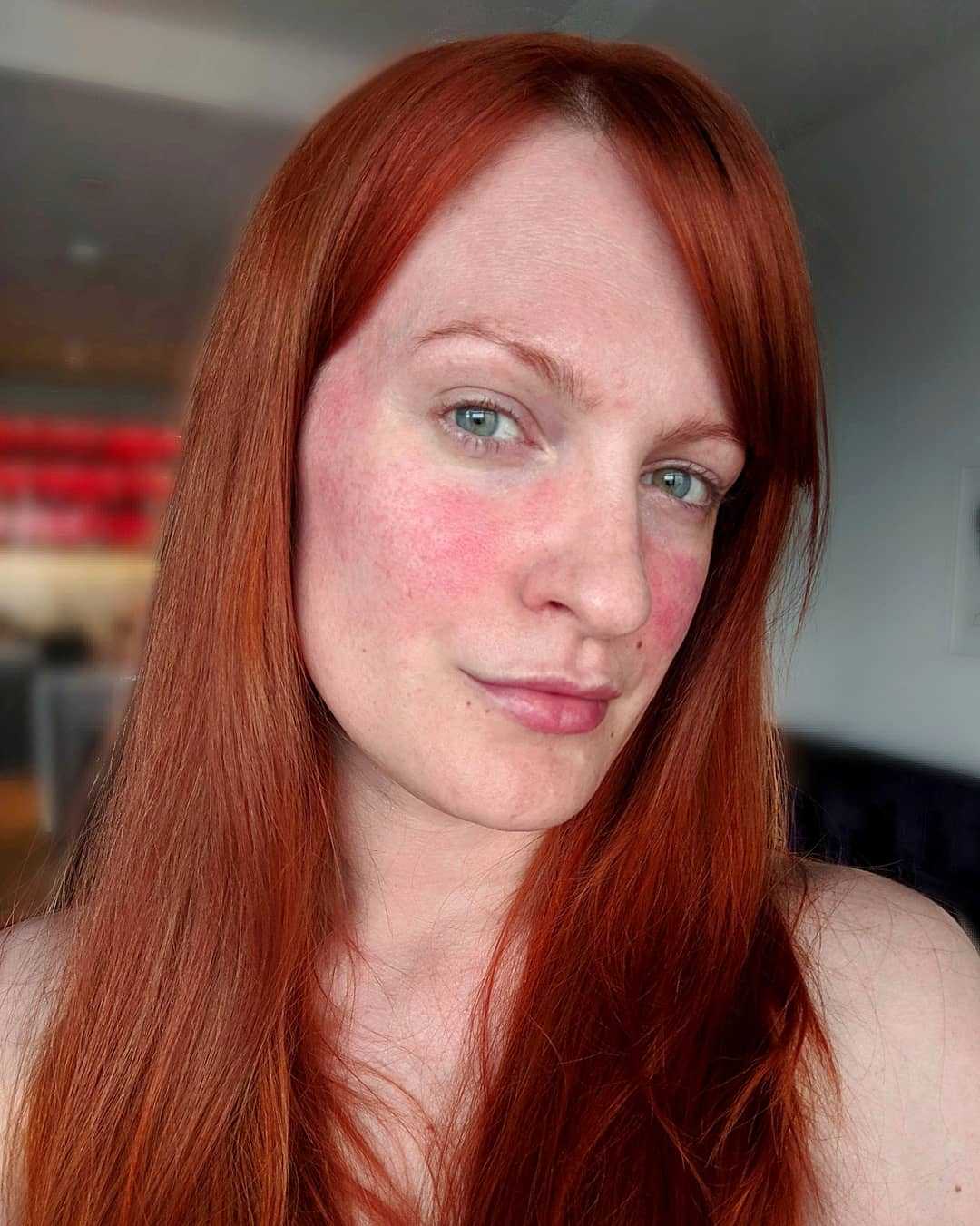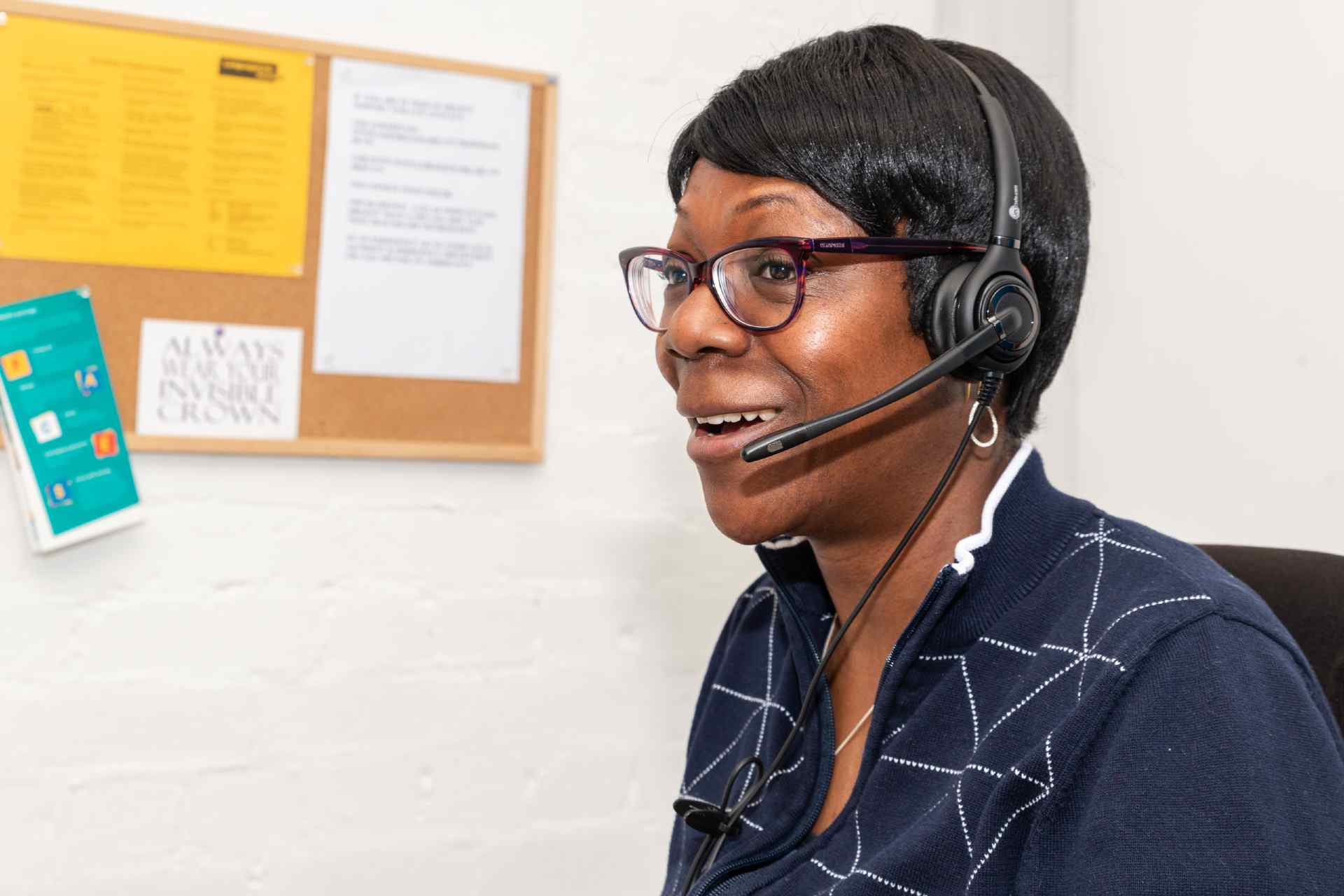I’m Lex, and I have rosacea. Rosacea is a chronic skin condition that mainly affects the face. It can present as facial redness, flushing, swelling, pustules, ocular issues, and – in severe instances – thickening of the skin.
I was 21 when I was diagnosed with rosacea. It was hard to hear that I had an incurable skin condition and I was given no real support or plan to help me, which felt devastating. I found it difficult to accept my diagnosis and I felt isolated.
In those early days, my skin made me incredibly self-conscious and upset. It would be hard to forget about even if I wore makeup, as my skin would be hot, itchy and would swell up.
Because rosacea is exacerbated by stress, I would get into a painful cycle of having a flare up, panicking about the flare up, which made it worse, which would make me panic more. It was really hard to break that cycle once it got going, especially as I still didn’t really understand what rosacea was.
The anxiety I had about my rosacea would manifest in compulsive checking of my skin. I would touch my face to see if it felt warm, I would check my reflection in every mirror I could to see if my make up was still covering my skin, and I would obsessively ask friends and family if I looked okay. I could never enjoy myself fully as I was petrified that my skin was going to flare up or that someone would notice it.
It’s taken a lot of work to feel comfortable in my skin.
I would get very upset if someone mentioned my skin or made a joke about it. As I got to know more about my skin and gained a little confidence, I would deflect these situations with humour or by pointing out the rudeness of people’s comments.
Because of all this, my self-esteem and confidence has been severely impacted over the years, something I’m still repairing now. I would cancel dates, wouldn’t see friends and would refuse to be seen without extremely high coverage make up. I would also feel guilty for indulging in things that I knew would trigger my skin.
It also affected my career at one point. I’ve cancelled job interviews and called in sick when I just couldn’t face people seeing me. I wouldn’t put myself forward at work if it meant speaking publicly or being involved in large meetings with people who didn’t know me.
One of my lowest points was when I stood in front of a large team of colleagues to present some work. A member of the team interrupted my opening speech to say that I looked flustered and if I wasn’t ready for the meeting, we could postpone it. I have never been so embarrassed, deflated, and upset. I cried in the bathrooms for close to an hour – which did not help my flare up!

Looking back, my rosacea developed at a formative time in my life, when I was away from home for the first time and trying to make friends and become my own person. It impacted how I saw myself and related to others. I’ve had therapy in recent years to try to unpick some of this trauma.
It’s taken a lot of work to feel comfortable in my skin. Not only to feel confident to show my skin to others, and to be ok with rosacea showing day to day, but also to know that no matter how my skin looks, I am still worthy of love, respect and care.
This has been a good breakthrough, considering the media we are exposed to in every part of our lives is obsessed with perfection and portrays an unrealistic idea of what ‘beauty’ should look like. It has been freeing to realise that comparing myself to that beauty standard was not only pointless but also hurting my recovery. The only person I can compare myself to is myself: is my skin happier than it was this time last year? Is it more resilient? Do I think about my skin less than I used to? Am I able to look in the mirror and be kinder to the person looking back at me? These are the things that matter.
I’m a better person for having rosacea. I don’t judge others on their appearance, I have a wider view of beauty and I’m more open-minded and kind.
I’ve had rosacea for 18 years and it’s become a subconscious part of my day that I barely notice. On a regular day, I will have to make lots of micro decisions related to managing my triggers, like diet and temperature. It can be frustrating to have to plan my life around my skin, especially when I have to explain it to others who probably haven’t even heard of rosacea. Flare-ups can still knock my confidence now and then, but I’ve done a lot of work to recognise my worth outside of my appearance.
A big positive to having rosacea is that I now have a job where I get to spread skin positivity, raise awareness, support others who might be feeling as lost and sad as I used to feel, and I’ve built the most wonderful community of respectful, educated and kind followers.
I’m a better person for having rosacea. I don’t judge others on their appearance, I have a wider view of beauty and I’m more open-minded and kind.
To anyone who’s recently had a rosacea diagnosis – remember to be gentle with yourselves over the coming months. A diagnosis like this can be really scary and upsetting. Be honest with those around you about what you’re going through. Getting the support of friends and family will really help you to feel more comfortable and enable them to help you.
You can also find free support from Changing Faces. Give their support and information line a ring and a practitioner will give you the time and space to talk about how you are feeling and explore what support from their wellbeing services might be best for you.

